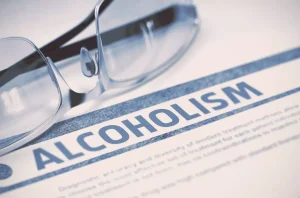Alcohol, Aggression, and Violence: From Public Health to Neuroscience PMC

Anger is a response to different factors like hurt, frustration, jealousy, feeling helpless, rejection, worry, embarrassment, etc. You may become angry on various occasions, and it alcoholic rage syndrome varies from person to person how you will express your anger. Anger is not always a big issue unless it causes problems in your relationships with family, friends, and loved ones.

Individualized, evidence based treatment, to fit your needs.
It can even be productive because it tells us we need to address some things that aren’t going well in our lives. According to the National Council on Alcoholism and Drug Dependence (NCADD) alcohol more so than any other substance is a contributing factor in cases of rape, murder, spousal and child abuse, and assault. Others can be affected by alcohol-related violence too, including wider family and friends as well as children. Plus, we’re always introducing new features to optimize your in-app experience. We recently launched our in-app chatbot, Melody, powered by the world’s most powerful AI technology. Melody is here to help as you adjust to a life with less (or no) alcohol.

Medication-Assisted Therapy (MAT)
However, in the recent years, data from the United States indicate that the binge-drinking rate in adult women (age 21–49 years) has been rising (Hasin et al., 2019; Sarah and Keyes, 2020). Evidence suggests that there is a little convergence in the pattern of binge drinking in men and women. It was found that the prevalence was higher for females than males from 2000 to 2010 for any binge drinking in the preceding month. On the contrary, the reason for the convergence of frequency in the male and female binge drinking habits is estimated to occur due to the large decline in the binge drinking frequency within men than the women. Furthermore, evidence also shows that the convergence of men and women has usually been stronger in the age group of young adults in comparison to any other age group (Wilsnack et al., 2018). Data from 2006 to 2018 indicate that both the men and women increasingly binge drink; in women, the largest increase was found in the age group 30–44 years without children (Sarah and Keyes, 2019).
Triggers for Alcohol-Related Anger and Aggression

Likewise, hostility is an attitude of resentment and unfriendliness that doesn’t require feelings of anger. Anger management and alcohol treatment programs must recognize and educate participants about the relationships between alcohol and anger. It’s equally important that psychotherapists highlight this interaction both with clients who consume alcohol and those in relationships with them. Additionally, this information should also be taught in schools to expand their understanding and hopefully reduce the prevalence of alcohol-related aggression. Many people enjoy alcoholic drinks as a way of relaxing, sometimes to reduce the tension of socializing or to quiet an overactive mind. By contrast, some individuals’ alcohol consumption contributes to their anger, hostility, and even aggression.
However, there is a higher incidence of violence among chronic drinkers. Studies have estimated that up to 50% of alcohol-dependent males display violent behavior. And cutting down or stopping has lots of other benefits too, for your physical and mental health. It is important to note that anger is a normal human response, but it can be warped and misdirected, causing problems for you and those around you. You may fear something or someone, but typically the greater fear is that of losing face, appearing ridiculous, or being abandoned.
How does alcohol affect the brain?
However, it can be harmful and destructive if you cannot control your anger. In addition, your doctor may prescribe medicines that are meant to lower alcohol cravings, which can reduce your desire to drink. However, for the best results, your doctor will likely treat them together. It’s often a lifelong commitment, but one that can improve your life, health, and well-being in the long term. Let Little Creek Recovery Center guide you down the right path to recovery, personal growth, and long-term sobriety. You may be wondering what you can do when someone shows signs of rage after consuming too much alcohol.
A lack of impulse control can make a person unable to resist the sudden, forceful urge to fly into a rage or act aggressively. This article discusses some of the facts behind the stereotype of the “angry drunk” and explores the connection between anger and alcohol. Groups like Al-Anon or Al-Teen are available to help support people who have been affected by a loved one’s alcoholism. BetterHelp offers affordable mental health care via phone, video, or live-chat. That’s because it reduces an individual’s self-control and internal inhibition.

In his case, he was already predisposed to anger arousal before he had his first drink. Domestic violence is a very dangerous potential result of alcohol abuse. A 2017 study showed that men under the influence of alcohol had higher rates of physical and sexual aggression.
- A lack of impulse control can make a person unable to resist the sudden, forceful urge to fly into a rage or act aggressively.
- This point is easier said than done, but you can achieve it with help from a treatment program.
2 Attendance and Treatment Satisfaction
Dysregulation of dopaminergic neurotransmission in AUD has been demonstrated in several brain imaging studies (Leurquin-Sterk et al., 2018; Chukwueke et al., 2021). Factors such as personality traits and comorbidities with other psychiatric disorders along with environmental stressors influence how one could engage in violent behaviors. Hence, even though alcohol might be the precursor to violence for some, it certainly takes more than the beverage to increase the likelihood of someone shooting from the hip.


